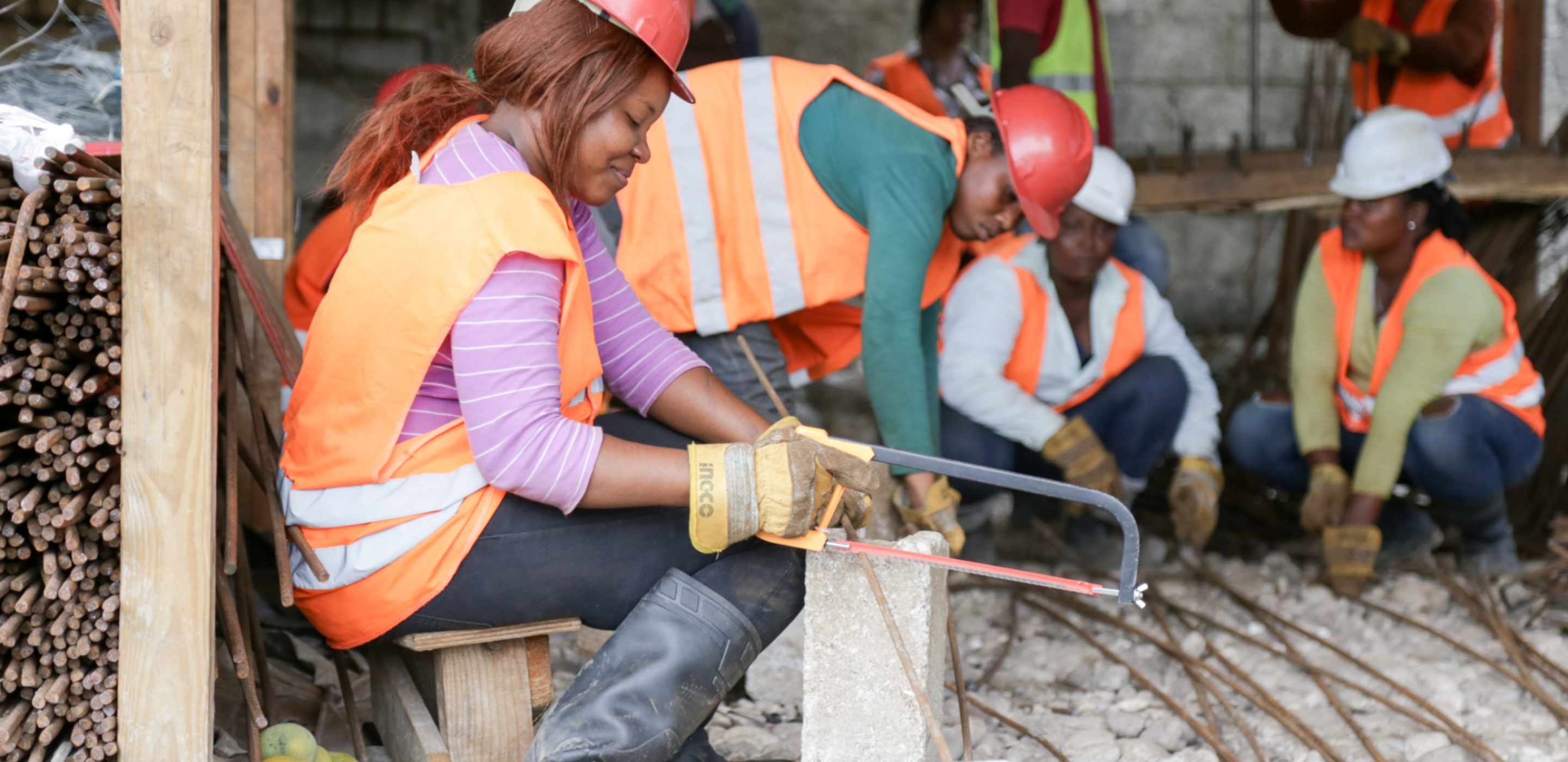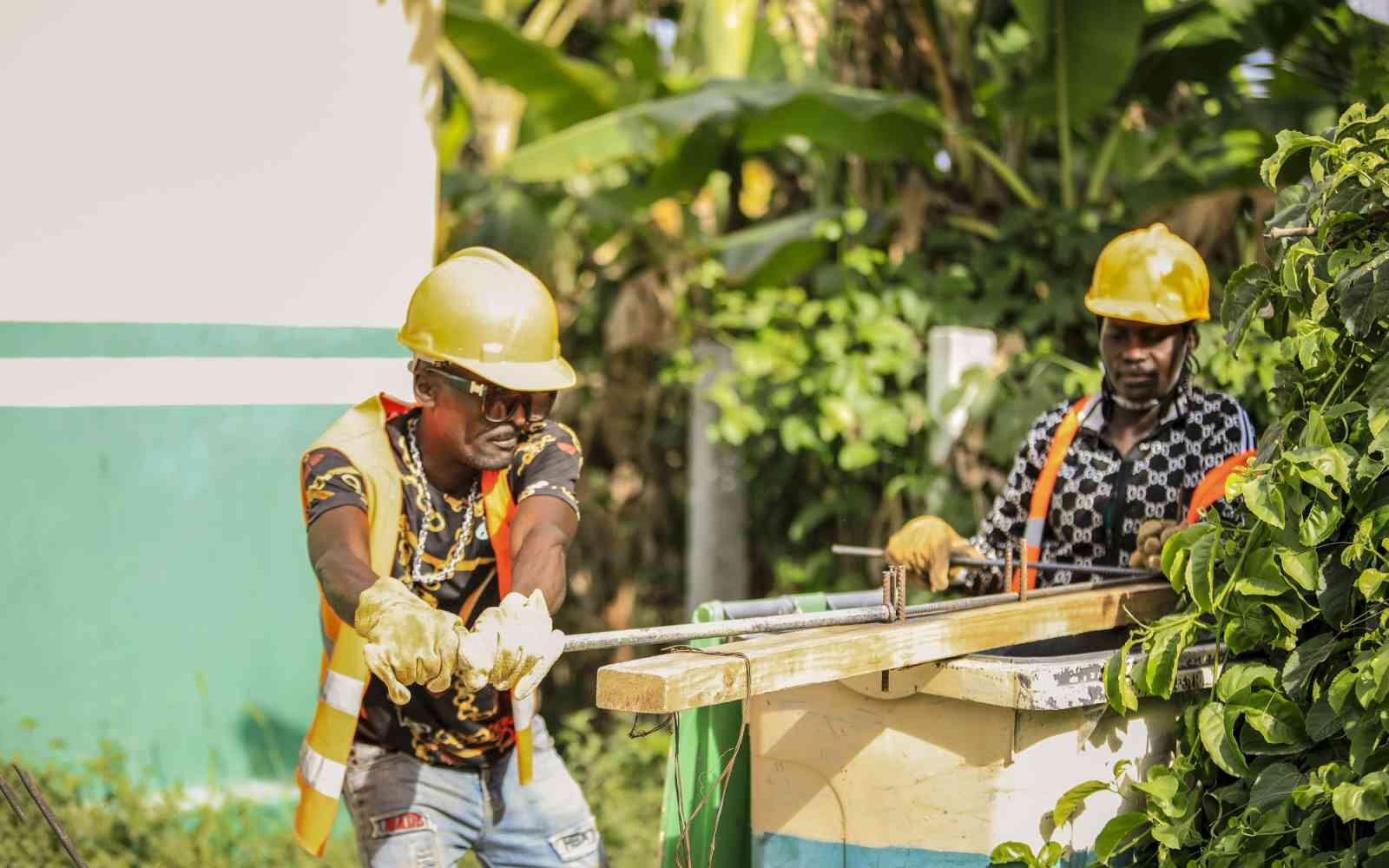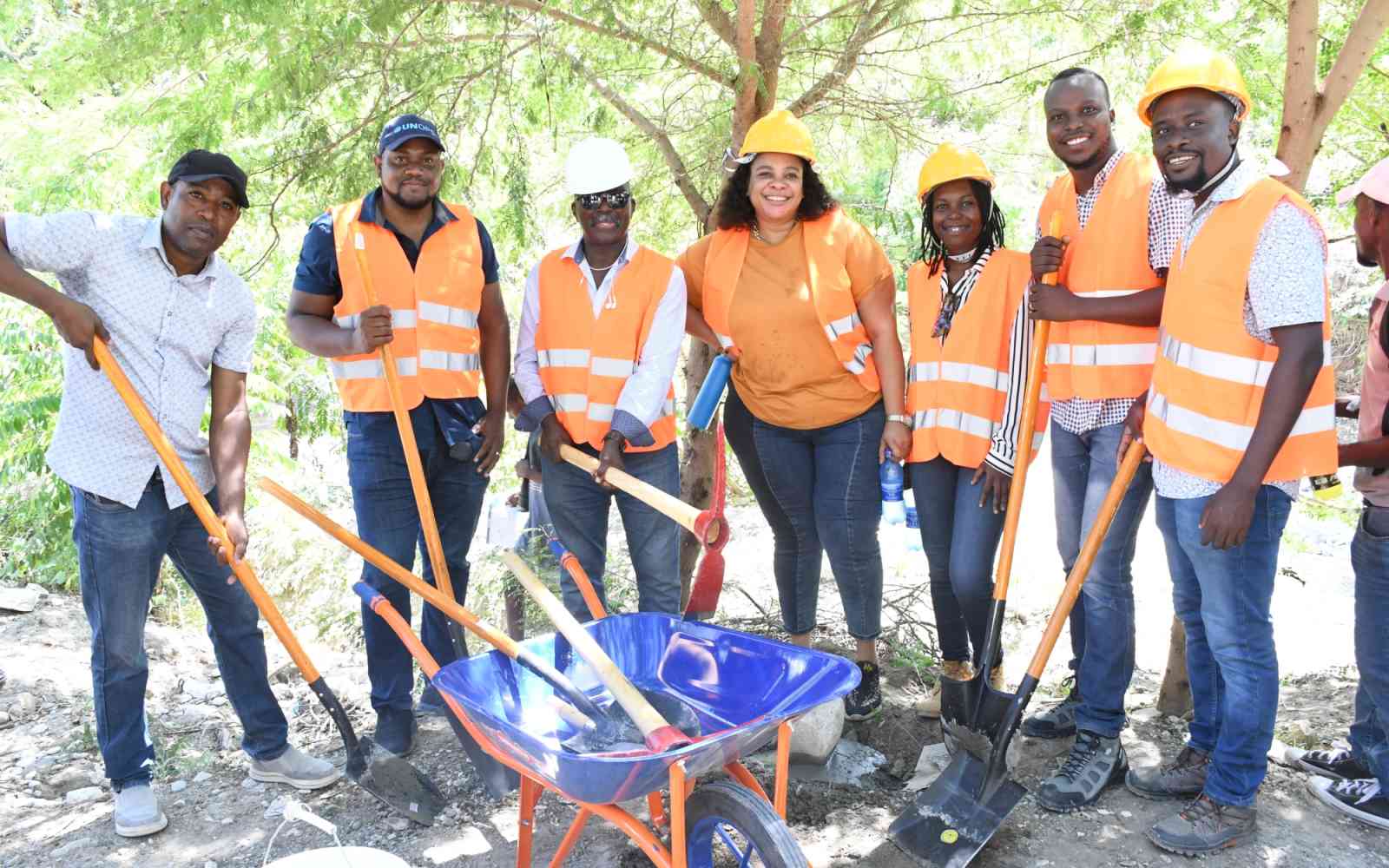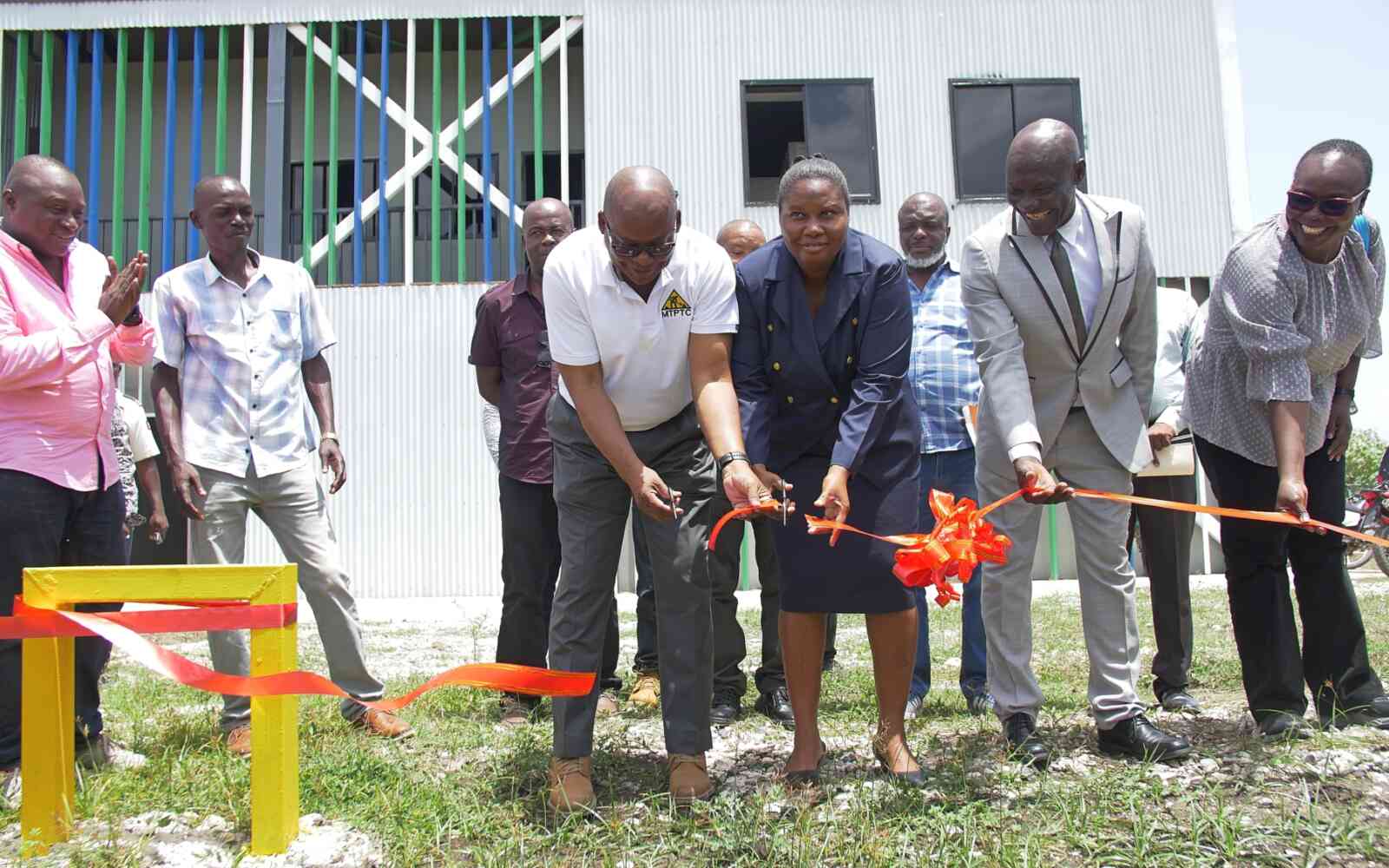The United Nations Office for Project Services (UNOPS)

Building a resilient Haiti
Over the past decade, Haiti has been left devastated by a series of extreme weather events and natural disasters. In 2008, the country was hit by four hurricanes, killing 800 people and destroying agricultural land. Then, less than two years later, a 7.0 magnitude earthquake rocked the country’s capital. More than 220,000 people lost their lives and 1.5 million people were rendered homeless.
A combination of poor infrastructure, densely populated urban areas and a lack of disaster preparedness has left Haiti’s 11 million-some population extremely vulnerable to the effects of natural disasters. Given the frequency of natural disasters, planning for and building resilient infrastructure is crucial for creating safer living environments and a more sustainable future for Haiti’s people.
With partners, UNOPS has been working with communities across the country to do just that, by helping to rebuild and rehabilitate key infrastructure that can better withstand the kinds of brute forces of nature that have ravaged the small Caribbean island.
We take a look at projects implemented by UNOPS that are helping to build a more resilient future for Haiti.
Better access
Better access
In the Departments of Grand’Anse and Sud, UNOPS recently completed a project to build and rehabilitate a series of roads damaged by Hurricane Matthew in 2016, and make them accessible during heavy rains. Funded by the International Bank of Reconstruction and Development, the project included the construction of several new roads and bridges that will improve access in places where people were forced to cross rivers to reach their homes. The works ensure surrounding communities can access important public services, such as hospitals and schools, but will also enable safer evacuations for people - if and when a natural disaster happens.


Based on the success of this project, the Government of Haiti, World Bank and UNOPS recently initiated a new partnership to construct and rehabilitate a further 80 km of roads in two other departments of the country, Artibonite and Centre. The works are due to be completed in 2020.
Importantly, many local community members severely impacted by Hurricane Matthew were employed to work on the project, generating incomes and providing valuable learning opportunities. Women made up over 40 per cent of the project’s workforce, where they gained new skills and knowledge that will enhance their employment prospects in the future.
“Now I’m able to do this work and it’s become pretty easy for me, thanks to the training I received. I’m grateful for this project. It has given us women the chance to build our skills,” said Marie Carine François, a construction worker employed on the project.
A total of 25 kilometers of roads have been rehabilitated and more than 16,300 people were employed to complete the works.
Better health
Better health
Back in Haiti’s capital Port-au-Prince, UNOPS has built three community hospitals to ease pressure on the city’s main hospital. The facilities are located in densely populated areas around the city and are built using sustainable materials designed to withstand shocks from earthquakes and hurricanes. The new hospitals already have a big impact, handling 8,000 consultations, 150 cesarean-sections and 400 hospitalizations each month.




The project is part of a wider effort to strengthen health infrastructure in Haiti. In partnership with UNDP and UNFPA, a total of 11 health facilities have been built since 2014, through funding from Brazil’s Ministry of Health, the Governments of Cuba, Canada, Haiti and Mexico, as well as the Petunia Foundation, the Pan American Health Organisation and the UN Stabilization Mission in Haiti (MINUSTAH).
“This project has not only brought quality health services to the local community, but it has become a trusted go-to institute. We can see this by the ever increasing number of hospital visits,” says Dr Emmanuel Louis Charles, a medical director at one of the hospitals.
“We used to have around 30 patients per day, whereas now the hospital receives somewhere between 120 and 150 consultations on any day of the week,” he adds.
UNOPS is providing training for medical and technical staff to ensure the country will have enough capacity to maintain and run the hospitals long into the future.
In addition, UNOPS has procured 40 ambulances and constructed an ambulance repair garage, to help strengthen local capacity and ensure the vehicles are well-maintained. Local mechanics were provided with training. A rehabilitation centre offering physiotherapy as well as visual, auditory and speech rehabilitation was also built - the first of its kind in Haiti.










